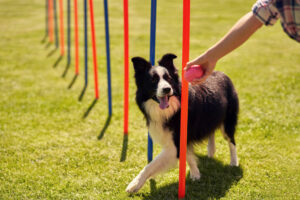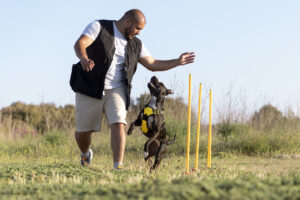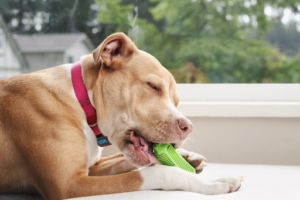A chronic disorder of the trachea that results in persistent coughing is called tracheal collapse. afflicted by this medical ailment, especially breeds like Chihuahuas and Pomeranians.
Years can go by when a dog has a collapsed trachea; the problem is only life-threatening in its final stages.
Fortunately, this article will guide you about the tracheal collapse causes, symptoms, and remedies so your dog can live to the fullest.
Cause of Tracheal Collapse in Dogs
When the cartilage rings deteriorate, they flatten and constrict the airway, resulting in tracheal collapse.
The root cause is thought to be the result of several unknown circumstances, but as small-breed dogs are more frequently affected, genetic factors might be present.
The following are some factors that can make coughing worse:
- Stress
- physical exercise
- heat
- humidity
- airborne irritants
Any dog, regardless of age, could get a collapsed trachea. However, elderly or middle-aged small breeds are more likely to experience it.
Symptoms of Tracheal Collapse in Dogs
Tracheal collapse symptoms might differ based on the degree of the illness. The majority of dogs suffering tracheal collapse will exhibit escalating symptoms throughout their lives.
A persistent, severe, and dry cough, sometimes known as a “goose-honking” cough, is a particularly prevalent symptom of tracheal collapse.
Some common warning signals to check for are:
- Breathing difficulties
- Wheezing or other abnormal breathing sounds
- Bluish gums
- Intolerance to exercise
- Retching or gagging
- Collapsing
Make sure that you constantly look for alternate workouts because it is critical to exercise your dog every day. Remember, obesity and other airway problems may contribute to more serious symptoms.
Diagnosis for Tracheal Collapse in Dogs
Lightly touching the trachea of canines with tracheal collapse might easily provoke a cough. In severe cases, dogs may even find it difficult to catch their breath.
Endoscopy of the trachea with the dog under general anesthesia provides the most precise diagnosis. The tests listed below may also be required to confirm a diagnosis:
Chest radiographs
These photographs are frequently taken to aid in the diagnosis of tracheal collapse as well as additional causes of coughing.
Fluoroscopy
This is a sort of specialized visualization that can reveal the trachea throughout inhalation and exhale to diagnose the location and degree of the collapse.
Treatment for Tracheal Collapse in Dogs
Tracheal collapse treatment is determined by the degree of severity of the problem. Mild cases may not necessitate treatment, while serious cases may want medical attention.
In the event of respiratory danger, canines suffering tracheal collapse require prompt veterinary care or oxygen therapy.
Changing from neck collars to harnesses as well as avoiding irritating pollutants like cigarette smoke are examples of lifestyle changes that will benefit your dog.
Among the most prevalent treatments are:
- Cough relievers
- Sedatives
- Corticosteroids
- Infection antibiotics
If the symptoms are severe enough to hinder your dog’s fundamental functions, your veterinarian may advise surgery. This is when the vet inserts a tracheal stent to keep the trachea propped up.
However, keep in mind that a tracheal stunt comes with its own risks. Even after surgery, expect to visit the vet frequently to keep them updated with your dog’s condition.
Conclusion
Understanding the causes, symptoms, diagnosis, and treatment choices can assist pet owners in managing the disease and improving the quality of life for their dogs.
The severity of the condition and the dog’s response to medical treatment determine the long-term outcome of tracheal collapse. If you feel your dog suffers from tracheal collapse, you should seek medical attention immediately.
For more pet tips and tricks, don’t forget to check out the PetFitness blog!








